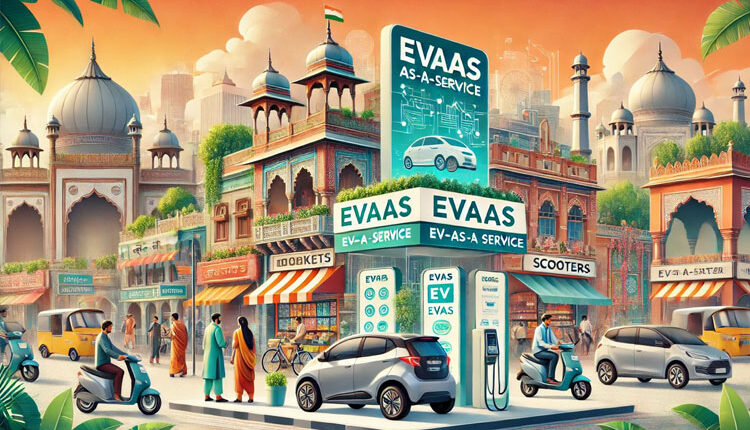Electric Mobility’s Next Gear: EVaaS Charges into India’s Future
The electric vehicle revolution is no longer a distant dream. India, with its ambitious targets for a greener future and a burgeoning middle class, is primed to be a major player in this global shift. But beyond individual ownership, a new model has emerged – EV-as-a-Service (EVaaS). This innovative concept is poised to democratize electric mobility, making it accessible to more Indians than ever before.
Imagine a future where you can access an electric vehicle, complete with charging infrastructure and all the bells and whistles – insurance, maintenance, even roadside assistance – for a monthly fee. Think “Netflix for EVs,” and you’ve got the gist. And this is precisely where EVaaS steps in, offering a flexible and affordable way to embrace the electric future.
Beyond “Just a Ride”: EVaaS’s Potential
EVaaS is not just about offering electric vehicles; it’s about providing a comprehensive and convenient experience. Think of it as a one-stop-shop for all things electric mobility, from charging to repairs, bringing a new level of comfort and convenience to the sector.
So how is EVaaS poised to shape India’s electric mobility landscape? Let’s break it down:
Accessibility: Bridging the Gap
EVs are still relatively expensive compared to their internal combustion engine counterparts. But EVaaS tackles this head-on, allowing individuals and businesses to access electric vehicles without the hefty upfront investment. This, according to a research report by Frost & Sullivan, is expected to drive a significant surge in EV adoption, particularly in the commercial vehicle segment.
Cost-Effective and Flexible:
The subscription-based model of EVaaS makes budgeting a breeze. You pay a fixed monthly fee, eliminating the pressure of large upfront investments. The model also factors in depreciation, maintenance, and other associated costs, making the monthly fee a comprehensive representation of your electric mobility needs. Moreover, flexibility reigns: users can tailor their subscriptions to suit their individual requirements, choosing the vehicle type, duration, and range per charge. This caters to a diverse range of needs, from daily commutes to weekend getaways.
A Boost for Market Growth:
Research firms estimate that the Indian EVaaS market will witness a CAGR of over 30% by 2026. The potential is immense, fueled by a growing middle class, government incentives, and robust infrastructure development. In fact, the recent launch of the EVaaS program by CESL (Convergence Energy Services Limited) signifies a pivotal moment in India’s EV journey.
Challenges and Opportunities:
While the future of EVaaS seems bright, there are challenges to be addressed.
- Infrastructure Development: India needs a comprehensive and expanding network of charging stations to support the anticipated surge in EV adoption, particularly in rural areas.
- Regulatory Clarity: Well-defined policies and regulations are essential to create a level playing field, attracting investments and fostering innovation in the EVaaS sector.
- Public Perception: Building trust and confidence in the EVaaS model is crucial. Public awareness campaigns and transparent communication about the benefits and workings of the model are essential.
Building a Greener Future:
EVaaS is not just a business model; it is a catalyst for change, a crucial element in India’s commitment to green mobility. By making electric vehicles accessible, convenient, and cost-effective, EVaaS has the potential to accelerate EV adoption, significantly reducing emissions and contributing to a sustainable future.
The future of EVaaS in India is brimming with potential, offering a glimpse into a future where electric mobility is not a privilege but a reality for all. As the industry evolves, we can anticipate more innovative solutions, wider adoption, and, ultimately, a cleaner and more sustainable transportation landscape.


